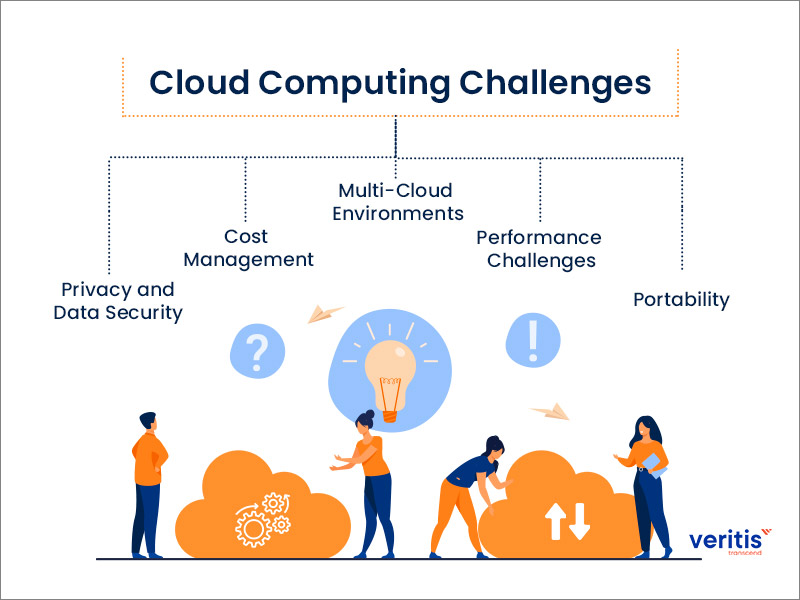
Cloud Computing for Businesses: Optimizing Hosting and Server Solutions for Maximum Efficiency
Advertisment
Introduction to Cloud Computing for Businesses
In today’s digital age, cloud computing has become essential for businesses aiming to streamline their operations and reach a global audience. Cloud computing refers to delivering a variety of services over the internet, such as data storage, servers, databases, networking, and software. Instead of relying on traditional, physical hardware, businesses can access these resources on-demand, leading to greater flexibility and efficiency.
The benefits of cloud computing for businesses are numerous, including cost savings, scalability, enhanced security, and improved collaboration capabilities. Whether you’re a small business looking to host your website or a large enterprise seeking advanced server solutions, cloud computing forms the foundation of modern digital infrastructure.
Types of Hosting and Server Services Based on Cloud Computing
When exploring hosting and server services within the cloud computing landscape, businesses have several options tailored to different needs and budgets. Let’s break down the most common types of cloud-based hosting and server services:
Shared Hosting
Shared hosting is a popular, budget-friendly solution, especially for small businesses and startups. Multiple websites share the same server resources, including CPU, RAM, and bandwidth.
Benefits of Shared Hosting:
- Affordability: The most cost-effective hosting option for businesses with limited budgets.
- Ease of Use: User-friendly control panels make managing websites straightforward.
Limitations:
- Limited Resources: Performance may be affected by other websites on the server.
- Less Control: Limited ability to customize server settings.
VPS Hosting (Virtual Private Server)
VPS hosting offers a balance between shared hosting and dedicated servers by partitioning a physical server into multiple virtual servers with dedicated resources.
Advantages of VPS Hosting:
- Scalability: Easily adjust resources as your business grows.
- Enhanced Performance: Dedicated resources result in better speed and reliability.
Best for: Growing businesses needing more control and performance than shared hosting can offer.
Dedicated Server
A dedicated server provides exclusive access to an entire server, ideal for large enterprises with high-traffic websites or resource-intensive applications.
Key Features of Dedicated Servers:
- Full Control: Complete control over server settings and configurations.
- High Performance: Optimized performance for faster load times and user experiences.
Ideal for: Large e-commerce platforms and applications requiring extensive processing power.
Cloud Hosting
Cloud hosting distributes your data across multiple servers, providing high reliability and flexibility. It is suitable for businesses of all sizes looking to scale quickly.
Benefits of Cloud Hosting:
- Scalability: Easily scale up or down based on demand.
- Cost-Efficiency: Pay only for the resources you use.
- High Availability: Reduced downtime with data distributed across multiple servers.
Compared to Traditional Hosting:
Advertisment
- Flexibility: Dynamic scaling is easier with cloud computing.
- Reliability: Consistent service even if one server fails.
Advantages of Using Cloud Servers for Business Websites
Cloud computing offers several benefits that can significantly improve your online presence and operational efficiency:
- Scalability and Flexibility Cloud servers provide unmatched scalability, crucial for handling peak traffic during events like product launches or seasonal sales.
- Cost-Efficiency The pay-as-you-go model ensures that businesses only pay for the resources they actually use, reducing unnecessary expenses.
- Enhanced Security Built-in security features like encryption, firewalls, and access control protect sensitive business data.
- Disaster Recovery and Data Backup Cloud computing includes robust disaster recovery features, ensuring data is regularly backed up and easily restorable.
- Global Accessibility Teams can access data and applications from anywhere, boosting productivity and enabling remote work.
Choosing the Right Hosting and Server Service for Your Business
Selecting the right cloud computing service depends on your business’s specific needs. Consider factors like budget, scalability, security, and technical expertise when making your decision.
- Website Traffic: High-traffic sites may require dedicated or cloud hosting.
- Budget Constraints: Shared hosting suits small businesses, while VPS and cloud solutions fit mid-sized companies.
- Scalability: Opt for cloud hosting if you expect significant growth.
- Security Needs: Ensure the provider offers strong security measures.
Leading Cloud Computing Providers for Business Hosting
Some of the top cloud computing providers to consider include:
- Amazon Web Services (AWS): Known for scalability and a wide range of services.
- Google Cloud Platform (GCP): Offers tools for efficient data and application management.
- Microsoft Azure: Excellent for hybrid cloud setups and enterprise support.
- DigitalOcean: User-friendly and cost-effective for startups.
Security and Data Protection in Cloud Computing
Data security is a critical aspect of cloud computing. Key measures include:
- Data Encryption: Ensure both data in transit and at rest are encrypted.
- Access Control: Use multi-factor authentication and role-based access controls.
- Regular Backups: Choose providers with automatic data backups for reliable recovery.
Benefits of Cloud Hosting for Small and Medium-Sized Enterprises (SMEs)
Cloud computing offers significant benefits for SMEs, such as:
- Reduced Operational Costs: No need for physical hardware reduces IT expenses.
- Increased Productivity: Quick deployment of tools and applications.
- Scalability: Pay only for what you need as your business grows.
Conclusion
Cloud computing has revolutionized hosting and server management, offering unmatched performance, scalability, and security. Investing in a cloud-based hosting solution is a strategic move for businesses aiming to stay competitive in a digital-first world.
Choosing the right cloud computing service can help your business thrive, ensuring you stay ahead with improved efficiency and reduced costs. Whether a startup or a large enterprise, the flexibility and reliability offered by cloud computing provide long-term benefits and competitive advantages.
Advertisment












Post Comment